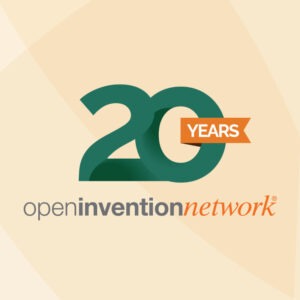The Open Source Initiative is planning on making a few changes to how they do things. They think they’ve got it figured out, but first they want to know what you think.
The Open Source Initiative, the organization that decides what is or is not an open source license, are thinking about making some changes to how it handles its license review process, and they’re looking for community input before putting any new policies in place.
Back in 2020, OSI established a License Review Working Group which was tasked with the job of examining and improving the organization’s license review process, which is how OSI decides whether a license receives its seal of approval as an OSI approved open source license.
Now, the working group has made its recommendations and OSI wants your suggestions.
In an article posted to OSI’s website on Thursday, Pamela Chestek, chair of the organization’s license committee and a member of its board of directors, said that the purpose of the working group was fourfold:
- Reevaluate the criteria for approving licenses, potentially setting different standards for licenses in use versus new licenses
- Reevaluate the process for considering licenses for approval, including whether the OSI should itself nominate licenses for approval
- Reevaluate the current categories for licenses, including how they are used and their usefulness
- Evaluate whether there should be a process for decertifying licenses, and what the process and standards would be for the process
Chestek said that the working group was originally tasked with discussing the delisting of licenses as well, but that was dropped along the way, with the recommendation that it be taken up by a new working group dedicated solely to delisting.
“It is a challenging subject because it means that the OSI first needs to learn who is using the licenses that may be considered for delisting and understand what effect it might have on them if their license undergoes a change in status,” she said.
She added that the working group also didn’t look into ways to improve the tooling used in the license review process, or how to improve methods for informing the public about Open Source licenses.
“Although the tooling project and the work of the License Review Working Group are intertwined, the … conclusions of the License Review Working Group are focused on the requirements and policy that will inform the tooling project, but do not include the tooling project itself,” she said.
License Review Working Group Recommendations
The recommendations from the License Review Working Group fall under three headings: submission process, approval standards, and license categories.
For the submission process, the majority of the groups recommendations deal with requirements that license developers must meet to submit their licenses to OSI for approval. Topping this list is the requirement that submitters must, “affirmatively state that the license complies with the Open Source Definition, including specifically affirming it meets OSD 3, 5, 6 and 9 (the points that historically have been more problematic).”
This appears to be an effort to stem to flow of “fauxpen” and “source available” licenses such as MariaDB’s Business Source License and MongoDB’s Server Side Public License, as well as “ethical licenses,” such as the Do No Harm License and the Hippocratic License, which seek to limit how, and sometimes by whom, software can be used.
To be considered an open-source license, the license must meet the qualifications of the Open Source Definition, a ten-point list of qualifications an open source license must meet to qualify as open source, and all of these licenses fail to meet all or some of the points listed.
The working group’s recommendations for the submission process contains four additional bullet-points that would have to be met by both legacy licenses (licenses that have been in use for at least five years by more than 20 projects maintained by different unrelated entities) and new licenses (described by OSI as “any license that is not a legacy license”).
There are even more recommendations for new licenses, which must also meet requirements that includes identifying “what gap [is] not filled by currently existing licenses that the new license will fill,” and the need to “provide examples of others’ potential use of the license to demonstrate that it is not a license that is uniquely usable only by the license submitter.”
Another important point in the working group’s recommendations is that, “The OSI will not recommend licenses … and will not try to provide advice on what licenses should be adopted for any particular use case.”
All of the recommendations from the License Review Working Group can be found in Chestek’s article.
Have an Opinion? Offer Feedback
At this stage of the game, OSI is looking for some feedback on these recommendations from the open-source community. To offer your thoughts on these recommendations you don’t have to be a member, or in any way affiliated with Open Source Initiative. All you need is an opinion — yay, nay, or nuanced.
“The OSI welcomes input from the entire open source community,” an OSI spokesperson told me.
“To collect feedback on this proposal, we’re going to use annotations on the wiki,” Chestek said in her article. “You will need to register to leave a comment. Highlight the text, hit CTRL-M, type your comment, save the annotation. More information on Xwiki help. The OSI will keep the discussion open for four months.”
Christine Hall has been a journalist since 1971. In 2001, she began writing a weekly consumer computer column and started covering Linux and FOSS in 2002 after making the switch to GNU/Linux. Follow her on Twitter: @BrideOfLinux







